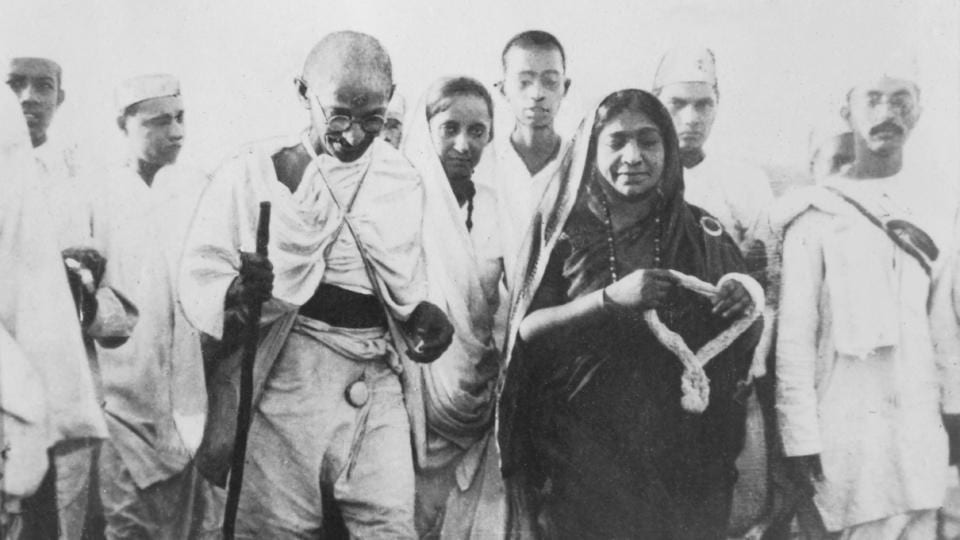
Mahatma Gandhi played a central and influential role in India's struggle for independence in 1947, as he did throughout the Indian independence movement. His philosophy of nonviolent resistance, or Satyagraha, became a guiding principle for the movement and inspired millions of Indians to join the struggle against British colonial rule. Here are some key aspects of Gandhi's role in India's struggle for independence in 1947
Leadership through nonviolent resistance: Gandhi's philosophy of nonviolent resistance became the cornerstone of the Indian independence movement. He led various campaigns, including the Salt March in 1930, the Quit India Movement in 1942, and numerous other protests and acts of civil disobedience aimed at challenging British authority and promoting Indian self-rule.
Mobilizing the masses: Gandhi had a remarkable ability to mobilize and unify the Indian masses across diverse religious, linguistic, and socio-economic backgrounds. Through his speeches, writings, and personal example, he inspired millions to join the struggle for independence, making the movement a truly mass-based effort.
Negotiations with the British: While Gandhi advocated for nonviolent resistance, he also engaged in negotiations with British authorities to secure concessions and push for Indian self-governance. He participated in various rounds of talks, including the Round Table Conferences in London, and engaged in correspondence with British officials, including Viceroy Lord Mountbatten, to advance the cause of independence.
Emphasis on Hindu-Muslim unity: Gandhi was deeply committed to Hindu-Muslim unity and worked tirelessly to bridge communal divides within Indian society. He undertook fasts and engaged in dialogue with leaders from both communities to promote harmony and prevent communal violence, particularly during the tumultuous period leading up to independence and partition in 1947.
Role in the partition negotiations: While Gandhi opposed the idea of partition and the creation of Pakistan, he ultimately accepted the decision to partition India as a means to avoid further bloodshed and communal violence. He worked to mitigate the consequences of partition, including the mass migration of populations and outbreaks of communal violence, through his advocacy for peace and reconciliation.
Overall, Mahatma Gandhi's leadership, commitment to nonviolence, emphasis on unity, and negotiations with British authorities played a crucial role in India's struggle for independence in 1947, leaving an indelible mark on the history of India and the world.
Thank You..